Are There Limits To Growth?
An invitation to take a clear look into the hellish realms of the techno-optimist's "sustainable" civilization and ponder the question of what kind of world we really want to live in.
Many people who work closely with the living Earth have concerns about the trajectory of our modern industrial civilization. These are people who will put the comforts of modern life as a secondary priority to giving a voice to wise and ancient beings that cannot speak for themselves and standing up against parasitic corporate industries and corrupt governments. Many of these people have calluses on their hands, soil under their finger nails and a warm shimmering light in their eyes. They are people who tend to and nurture human and non-human beings, people who love our Great Mother Earth (and all her children) deeply.
Some of these vigilant, honest and courageous defenders of life on Earth (such as Derrick Jensen) feel that the inevitable end result of continuing on the trajectory that industrial civilization is on is extinction for humans, but others have a vision which I would say is a much worse potential than death and extinction.
(a clip that expresses Derrick's perspective:
Charles Eisenstein on the other hand, invites us to look through a mirror darkly and instead consider, what if we can truly make our current way of life "sustainable" ?
What kind of hellish soul corroding ‘concrete world’ would we end up with a few generations down the road if we keep this up and manage to keep "Civilization" on life support "sustainably"?
The following sections of Charles’ book on climate are relevant to exploring this thought experiment (and potential future):
- https://charleseisenstein.org/books/climate-a-new-story/eng/in-a-rhino-everything/
- https://charleseisenstein.org/books/climate-a-new-story/eng/the-concrete-world/
a quote from the an essay linked below that expresses the potential Charles invites us to consider:
"I do not worry that our system is not sustainable. I worry that it is. I am afraid that we can continue to lay waste to the living earth, indefinitely, ending up on a concrete world, so chronically ill physically and mentally that we must incorporate technological assistance into our very brains and bodies. I am afraid we will compensate for the lost connection to a living world with a burgeoning array of virtual substitutes, digital realities, and online adventures, tragically seeking something that we come to forget we ever had. Do you remember how loud the frogs were? Do you remember flocks of birds extending from horizon to horizon? Do you remember the clouds of fireflies that lit up the nights of my father’s youth? I am afraid we will forget we ever lived in such wealth and make do instead with Mario Cart. We are already far down this path to a concrete world, and far down the path of learning to cope with it. American doctors write every year around 120 million prescriptions for SSRIs, 118 million prescriptions for Adderall, Ritalin, and other ADHD medications, and 120 million for benzodiazepines. That’s more than one psychiatric drug prescription per capita!"
another quote that is along the same lines:
It invites us to imagine a world, lets say a century from now, where we have "sustained" the way we currently live now, depicting...
"..a nightmare world where the entire biosphere has been converted to a giant feedlot and industrial park, where we manage the planet like a machine with technological tweaks to its gross material components, where no species exists that has not been turned to human purposes. It is a world wholly toxic to life except within artificially maintained enclaves. It is a world of vat-grown meat, computerized hydroponic greenhouses instead of farms, algae pools for oxygen, carbon-sucking machines to regulate the atmosphere, desalinization plants, climate-controlled air-filtered bubble cities, and a planetary surface converted to one huge mine and garbage dump. In that world, human life becomes entirely dependent on technology, as we retreat from the ugliness we have wrought into an artificial or even a virtual environment. Can you say this isn’t already under way? This is not a world I would want to live in. No one would, yet for thousands of years, humanity in aggregate has proceeded choice by choice, step by step toward a Concrete World. I would like to dismiss it as impossible on ecological grounds, but what if it is possible? What if, instead of being compelled to reject it, we must consciously choose a different path?
Whether or not endless technological adaptation to an ever-more-degraded ecosystem is actually possible, the perception that it is possible indeed presents us with the necessity of making a conscious choice. If ecological degradation had the power to force us to choose a healing path, it would have happened already. Therefore, that choice to take the healing path will have to be made on some basis other than compulsion. It will not come through fear of personal or civilizational extinction.
Despite all that has been lost in our progress toward a concrete world, much beauty remains. The earth is still alive. Now is the time to choose life. It is not too late.
Most people would acknowledge a feeling of loss at the thought of a world without elephants, rhinos, or whales. But, the cynic might say, we’ll get used to it and not know that anything is missing, just as you probably are not mourning the loss of the Pyrenean ibex or the hundreds of nameless species going extinct every year. However, in the Story of Interbeing, where self is relationship, each extinction impoverishes the web of relationships on Earth that includes ourselves; it shrinks us and simplifies us. Extinctions are the end result of an ideology that makes other beings into less than full beings and excludes them from the circle of self. First, they are cast out of full existence via our belief system; in the end, the casting out takes irrevocable physical form. First, the mythology of separation isolates us from our companions, who are really part of ourselves; then those companions perish forever.
This impoverishment goes beyond outright extinction. Many species, while not entirely extinct, persist as remnant populations on tiny fragments of their former range. Thus they recede from our lived experience. Moreover, modern people live almost entirely in a realm of products, media, and the indoors, estranging them from the life forms remaining in their ambit. I cannot identify the name and likeness of more than ten bird species from their songs. Can you? I hope you can, but I think most in my culture cannot. This degree of alienation is normal now.
One consequence of this is an ever-growing loneliness, an ache that nothing in the indoor world, manufactured world, or digital world can assuage. We miss the complement of our relationships in all their diversity. Standardized, digitized, or abstract relationships do not nourish full beingness. Surrounded by standardized commodities, visiting public spaces filled with strangers, interacting increasingly through the internet, and distanced from intimate relationship with nature in a world of climate-controlled houses, packaged food, and machine-mediated labor, we are poor in our very existence. Do we still survive? Yes. From the perspective of the Story of Separation, we continue to exist. But it is a partial, anemic existence."
above quote from: https://charleseisenstein.org/books/climate-a-new-story/eng/the-concrete-world/
Maybe there are no limits to the growth of our civilization and the techno-optimist’s dreams of perpetual technological “progress” will lead to us finally achieving complete dominance, quantification and control of nature… maybe the technologies that people like Steven Greer talk about which can unlock sources for endless renewable energy will (regardless of what utopian vision he depicts) be tapped into to expand our industrial civilization across the entire face of the planet, removing all those ‘dirty forests’ and ‘virus spreading wild animals’ and replacing them with more civilized, clean and uniform feeding lots, mining operations and manmade environments made of concrete, plastic, glass and steel. Our monocultures can produce perfectly predictable genetically modified clone plants that give us just enough nutrition to keep us alive while we use VR goggles to escape the world of monotonous soul crushing uniformity we have created. Perhaps people like Elon Musk will succeed in microchipping most people’s brains and hooking them up to his 5G A.I. Skynet (Starlink) satellite grid so that even our thoughts can become a monoculture and then civilization can become really “sustainable” under the watchful eye of the transhumanist’s AI overlords.
And if there is no limit to the growth of industrial civilization, the question we should then be asking ourselves instead of “will this make humans go extinct?” is “if we are capable of either creating a world that is a giant feeding lot, garbage dump and mining operation, or a place of wonder, beauty and diversity, what kind of world do we really want to live in?”
No the title of this post was not about the growth of the human population, it is about the perpetual growth of industrial civilization (or as the billionaires and their puppets in government like to call it “sustainable development”).
Besides, in reality, most people who have been paying attention to fertility rates over the last decade acknowledge that our population on Earth is actually decreasing, not increasing.
(Watch "We Are No Longer Replacing Ourselves" and/or read a book called “The Countdown” for more info)
These are the thoughts that arose in my mind in response to the question about “limits to growth” that I came across recently in the Corbett Report archives. It invited me to ask a few questions of my own.
Looking through this mirror lens darkly at the hellish “sustainable” concrete world looming in the distance at the end of the tracks our current dominant expression of “Civilization” is headed towards, invited me to see that “are there limits to growth” is really the wrong question to be asking ourselves. That question is attempting to solve for the wrong variable.
The more important question we should really be asking ourselves is:
Why have we settled for a world that grows uglier and more degraded with each passing year?
Just incase you are thinking to yourself “why would he say that the world has grown uglier and more degraded with each passing year? I am looking out the window of my high rise apartment and the towering skyscrapers in my city are looking beautiful!”
Here is a glimpse of what has been happening to the natural world outside of the concrete jungles (which have been perpetually expanding) over the past few decades - a century:
https://ancientforestalliance.org/ancient-forests/before-after-old-growth-maps/
What if (as advertised) development really is “sustainable”?
I was watching a starwars tv show last year that depicted a planet at the center of the Galaxy (“Coruscant”) which is a planet that is completely covered in one giant city.
The episode depicted two characters going to visit a sort of ‘park’ or monument which had the very highest peak (the peak of “Umate”) on the planet poking out of a section of cement (surrounded in security railings and drones) about 3 meters, and one of the characters explained how that was the very last natural piece of the planet that is exposed, the rest is covered in city. One of the most disturbing things for me, is that in this depiction, the city planet was not depicted as the center of evil or the empire, no, it was shown as no more than a busy planet of democracy and bureaucracy, businessmen and industrialists, all just “trying to make a living” having achieved the construction of a ‘wonderful’ civilization.
The story glossed over that abhorrent depiction in a sort of trivial way, but I found it to be very chilling.
Humans have even come up with a name for such an abomination. They call it an “Ecumenopolis” https://en.wikipedia.org/wiki/Ecumenopolis (a planet completely covered in one giant city).
Considering it is a thing that has been given a name and is depicted in lofty starwars scifi scenes it almost seems as though some humans think such a thing is worth striving towards creating.
I feel that if we created such a thing it would be like creating a rock hard capsule that seals our heart and minds off from our soul. We would become vacant empty versions of humans, driven by perpetual superficialities.. living a pointless existence while patting ourselves on the back for how civilized we all are.
Would you want to live on an Ecumenopolis ?
If you do not want to live on a cement world (“world where the entire biosphere has been converted to a giant feedlot and industrial park”) what actions are you willing to take and addictions are you willing to give up in order to prevent it from becoming our shared reality?
How much damage done to the remaining intact mature ecosystems/bio-diverse wilderness places (in the name of living a life of comfort and propping up our top heavy technologically dependent civilization and technological addictions) is too much?
Is there no limit to how much is too much (if that damage is required in order to continue to allow us to live the way we do now, in perpetuity)?
Is there is a limit, how do we define it, and how should we strive to live in a way that respects that boundary?
What does it mean to be a good Citizen?
In a conversation I was having with a fellow Corbett Report Subscriber (that goes by the screen name “generalbottlewasher”) who often shares perspicacious, witty and humorous comments in the threads, we ended up describing what the word “citizen” meant to each of us. I expressed how the word evokes my misgivings about nationalism, statism, “smart cities” and swearing allegiance to authoritarian institutions but “generalbottlewasher” on the other hand provided a perspective of that term that is more positive, grounded in humility and relationship to place.
He described the term as:
Citizen,
Person of a local community, known of by that community.
He continued to elucidate on this thoughts on the word citizen, posing some poignant questions and making a thoughtful suggestion in another thread by saying:
What is a citizen?
Well to me it is someone who is not invisible. Known to the surrounding community.I had a business in a small town on the shoulder of a large town, small city. It was a thriving community. Possibly made up of every conceivable economic stada and background a slice of Americana that could be. Oil, glass, steel, mom and pop shops of an infinite variety.
Every person had a name. From the Banker, Bakers, Tradesmen to services of all kinds, shops, kids, retirees, and even rail bums. They all were visible. They all had names. Even the bums that sleep out back in the alley. Lump, Red, Vic ,they drank, fought, murdered each other on rare occasions. The court house was 3 blocks down the street.. But you never worried or felt fearful cause they had names..
Wow has things changed. Do you know your neighbors name? Do you know my name? Do you care?Pay it forward by asking everyone what their name is.
His insightful comment invited me to see the word citizen with a different light and invited me to consider what it means to be a citizen of a community in the more than human world.
I responded by saying:
“you never worried or felt fearful cause they had names… Do you know your neighbors name? Do you know my name. Do you care. Pay it forward by asking everyone what there name is.”
Powerful stuff my friend.
Now contemplate that question while extending the definition of “neighbor” to include non-human beings and you would be describing the question I am asking myself as I write my next book.
In a world where people no longer know the names of the plants and trees that also call the place home where they live and yet they know the names of a thousand corporations, they feel at home in a shopping mall and surrounded by scary strangers when they are in a forest.
Getting to know the names of the non-human beings in the place we call home roots us into reverence and respect, confidence and empowerment. Getting to know our neighbors (human and non-human) allows us to become a good “citizen” of the communities we are a part of (human and non-human communities).

Dispelling the detrimental myth which is shared/promoted by both the “sustainable development” propaganda and mainstream environmentalist modo of “lessening our impact on the Earth”, “leaving no trace” (when interacting with wilderness places) and the fallacious viewpoint of seeing humanity as some kind of disease or imposition upon the Earth.

I would like to propose what may sound like a radical proposition to some nature lovers and environmentalist activists out there that may have been conditioned to subconsciously embrace a quasi-misanthropic view of humanity and our place on this world.
I do not advocate lessening our impact on the natural world. I think we should increase our impact on the more than human world ten fold.
As Lyla June says in this video clip we can use these human hands to proliferate amazing abundance, becoming an asset to the Earth and making her feel grateful for our presence.
I think we should use these amazing human hands and powerful brains that God gave us to have a huge impact, like the people of the Amazon did when they created the Terra Preta soils that allowed them to co-create the giant food forests of the Amazon jungle that have persisted for 4500 years.
Instead of internalizing the false idea that portrays humans like a plague or a cancer on the Earth, I advocate we instead use our free will (and the sentience that so many humans covetously claim is unique to our species) to instead choose to define ourselves as co-creators of beauty, abundance and diversity.
Our ancient ancestors have shown us by example that it is possible to become a positive force for impacting nature in a way that honors and nurtures life, rather than defining our selves as takers, users and consumers.
Destruction and degeneration are not inevitable. Humans are not inherently parasitic and extractive as the anti-human globalist propaganda implies.
Humans have the capability of either being takers/consumers (extracting from the Earth but giving nothing back) or givers (living within a web of reciprocal gift exchanges).
Both choices can be observed in individuals in our lives and cultures throughout history.
Here are some examples of when cultures decided to use their genius, technology, horticultural/botanical knowledge and ecological literacy to define themselves as givers living within a web of reciprocal gift exchanges (having a huge positive impact on the ecosystems around them):
“Architects of Abundance: Indigenous Food Systems and the Excavation of Hidden History” https://www.proquest.com/openview/17597a179528716e1a9e8515ca76ec77/1?pq-origsite=gscholar&cbl=18750&diss=y
Here is a video presentation that touches on some of the content in her dissertation:
Some other examples of technology serving as a regenerative tool that fostered increased biodiversity, increased human habitation and permanent food production systems that do not require fertilizer:
http://www.daviesand.com/Papers/Tree_Crops/Indian_Agroforestry/index.html
https://www.ecologyandsociety.org/vol26/iss2/art6/
https://canadianfeedthechildren.ca/what/food-security-projects/indigenous-food-forests/
Unlike the WHO’s “One Health” treaties and UN’s “sustainable” development goals (and other similar greenwashed globalist propaganda) I advocate for increasing the impact we have on the ecosystems we are a part of, not minimizing the impact we have on them. Unlike the anti-human greenwashed globalist propaganda or misguided brand of environmentalism that portrays humans as an imposition on nature, I do not think it is beneficial programing people to become misanthropic and see themselves (and their fellow humans) as some kind of disease or imposition with regards to our impact on the biosphere (telling them to lessen their impact and ‘leave no trace’ avoiding interacting with wilderness areas and forests). Rather, I humbly invite you to see from the more ancient perspective of our ancestors who lived in close relationship with the land to unlock our potential to intentionally have a huge impact on the land (which is positive). I invite you to see that we were given many gifts as humans which can serve to increase biodiversity, beauty, resilience and abundance within the ecosystems we live.
Through unlocking our own unique gifts and then imagining a way we can align them to be in service of life, we begin changing our viewpoint of humanity from an imposition on the Earth to an asset to the living Earth, we lead by example to redefine what it means to be a human being.
Even if one lives in a city apartment, taking action to grow some medicinal herbs in pots (or better yet to start and/or contribute towards a community garden) this offers the empowering opportunity to begin developing one’s botanical literacy, pattern recognition and cultivation skillsets so that one is both learning to provide for themselves and increasing one’s emergency preparedness through building universally applicable knowledge and experience. We can all start somewhere and if you are reading this then you are able to discover people who are engaging in this important work of educating and installing food forests all over the world so if you are not in a position to do the hands on work yourself you could donate to those who are able and willing to help support their work.
Each of us can find a way to use our gifts and blessings in this life to leave this world a little bit more green and beautiful than it was when we got here for those who will call this place home after we are gone.
Each of us can Pay It Forward in our own unique way, whether it takes the form of a handful of seeds we plant in the rich Earth or a donation to those who are working to regenerate and cultivate abundance in the natural world.
“No action is wasted, every action changes Creation”
Every action, word, thought and emotion we choose and give our energy to sends out a ripple into fabric of reality. These ripples wash over the beings we share this experience with and have a very real effect. These ripples we send out have measurable energetic, biochemical, epigenetic, psychological and physical influences on our fellow beings.
“Humble lives" (as Charles describes the choice of living everyday life with compassion and integrity: youtube.com/watch?v=CknaStMmf8A ) issue out a prayer for a more caring society. Whether it is caring for one's children, a garden, uplifting or helping a stranger, tending to a tree or engaging in Self-care, each choice based in integrity, compassion, courage and peace issues forth a prayer, shifting the morphic field.
"Sanity is walking with open eyes to see what is really valuable".
I see a genuine intent to make more and more choices that align with a striving to be an honorable, humble, kind and reverent human being as inherently valuable and fundamentally essential as we strive to dissolve corruption on Earth and create a more beautiful world we all know is possible.
I see the choice to consciously put out an effort to get to know our neighbors (human and non-human) and forge alliances with our elder rooted beings as inherently valuable and honorable.
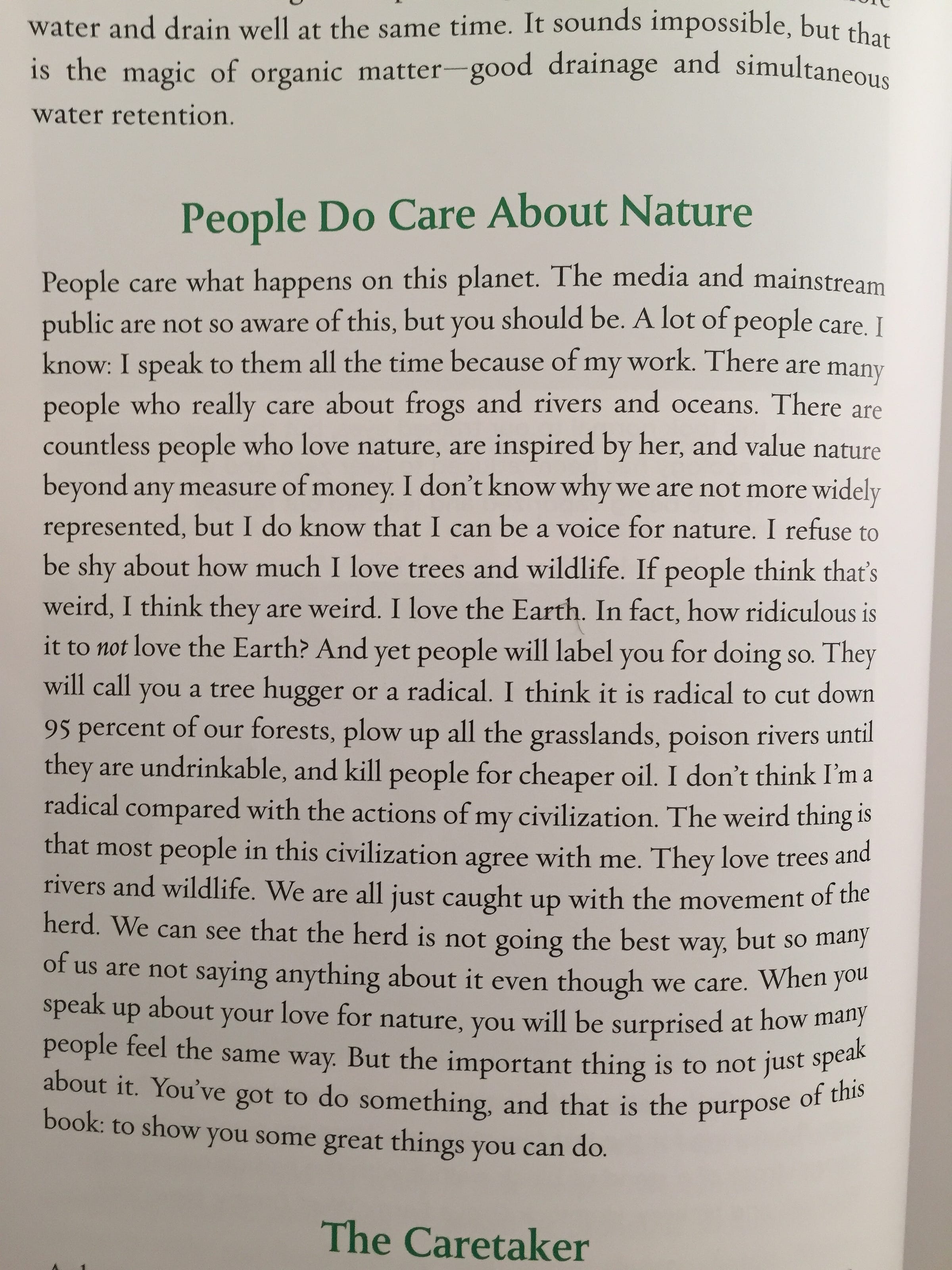
We now find ourselves at a choice point, where each human is being given the opportunity to choose to embody the template for a new civilization. With the regenerative knowledge, skills and awareness now available to us, we are able to begin utilizing our innate abilities as human beings to align fully with the syntrophic forces of nature. Each of us has the potential to be as an "imaginal cell" and move our species towards that critical mass moment of transformation which will mark the beginning of a new era for mankind.
It begins with us working to 'weed the garden of the mind'.. and when only that which we wish to see in the world around us flourishes there.. it then moves into planting physical seeds in the world around us. In doing so, we become a seed which can set down the roots and become the living template for a new way of living and civilization to take hold on the Earth.
In, is the only way out, for it is within that we may re-kindle the spark that we were born with to become a flame and illuminate a path forward that honors the sacredness of all life. Do not allow the fleeting shadows in our midst to distract you from the sacred tasks you came here to accomplish. You are the story tellers and the dreamers of the dreams, weaving threads together to become the fabric of reality.
When we look around ourselves today at world events it is easy to fall into feeling helpless and defeated. Never forget, it only takes a single candle to light up an entire room filled with darkness but you cannot take any amount of darkness and effect a well lit room at all. This is because darkness is not a substance but rather the lack of a substance... that substance being love and/or light.
Each one of us (whether we realize it or not) are in the position to serve as a trail blazer and torch bearer for others that either look to us now, or will look to us in the future. The choice to speak a kind word to a loved one, smile to a stranger, plant a seed in the rich Earth or strive to let go of patterns that no longer serve us is no less significant than the choice to write ten thousand words about those same things. In fact, it is the action itself that is guaranteed to creates a morphic field that really changes this world in invisible and powerful ways, where as the words may or may not inspire others to choose the action.
Thus, each of our quiet moments, and the choices we make when we think no-one else is watching are opportunities to become leaders in defining what a human being is and what we are capable of, lighting the way for others energetically and physically.
Trees are powerful allies and wise teachers that can help us remember what it means to be a good citizen within a community of life and we should strive to embrace those alliances and learn from them (each in our own way).
Thank you to all of you out there who are choosing to embody and provide that medicine for our human family (whether it is via your planting seeds in hearts and minds, or planting literal seeds).
Thank you to all of you who are taking steps to use your own unique gifts to have a positive impact on your community (human and non-human communities) and thank you to all of you striving to be a good “citizen” of the Earth.




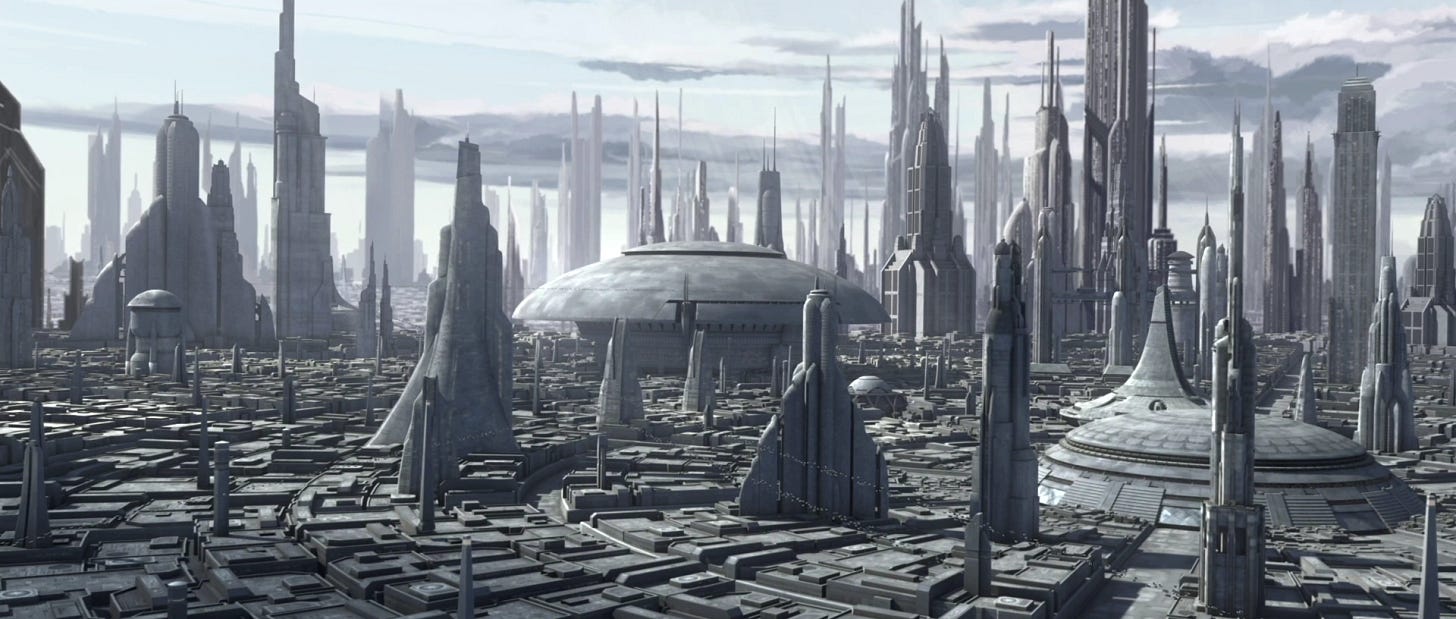
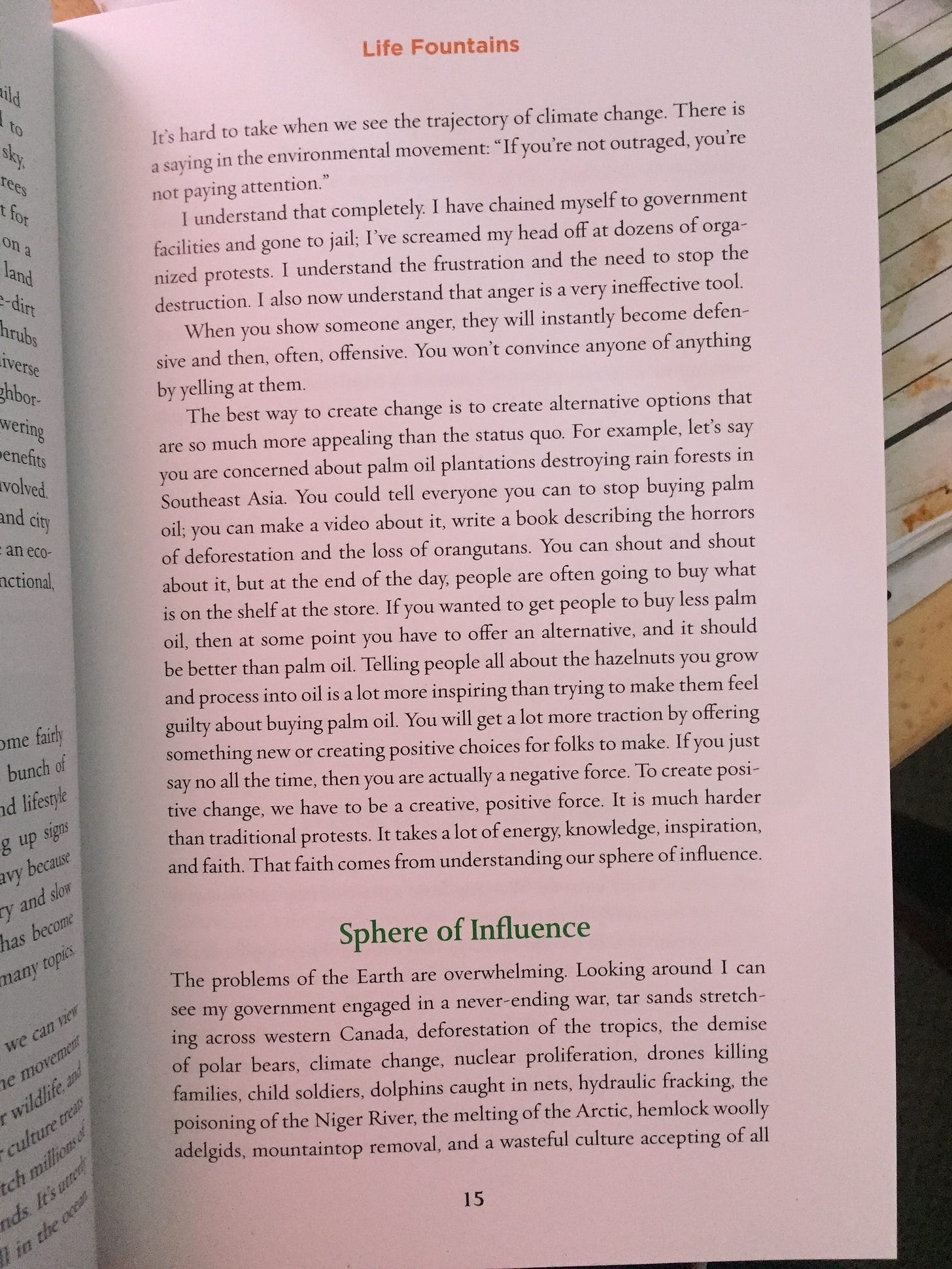
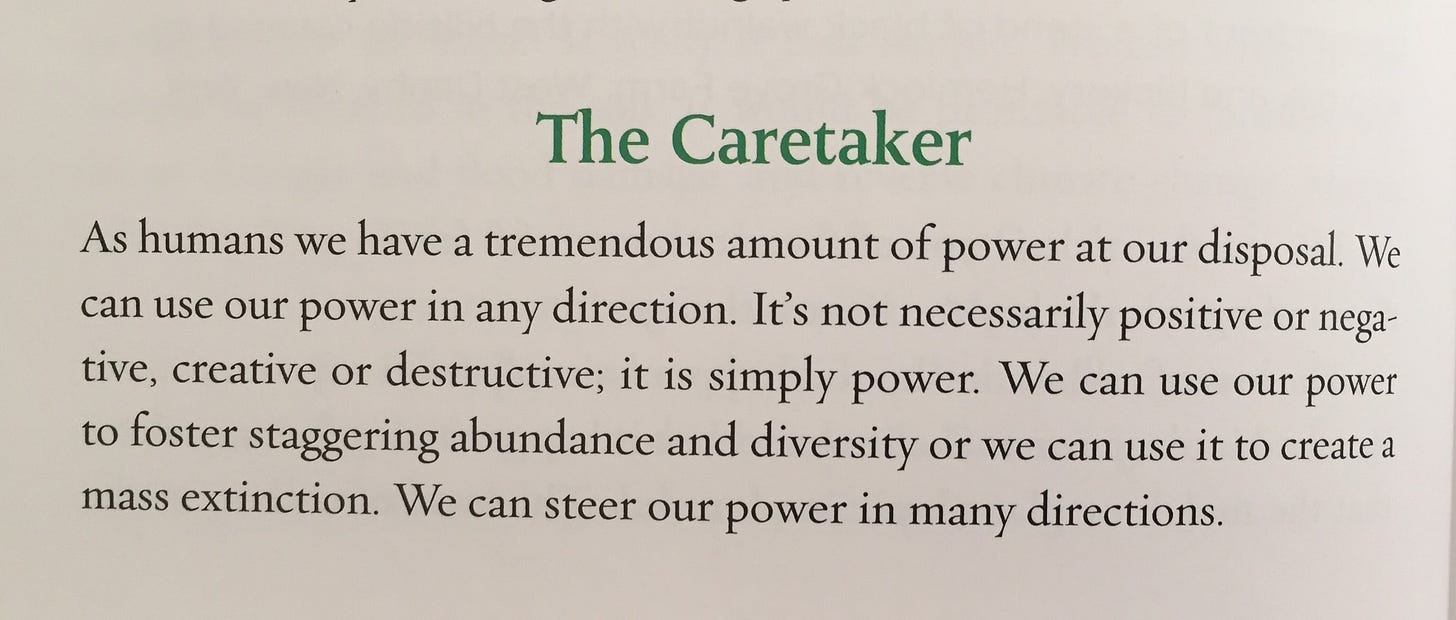

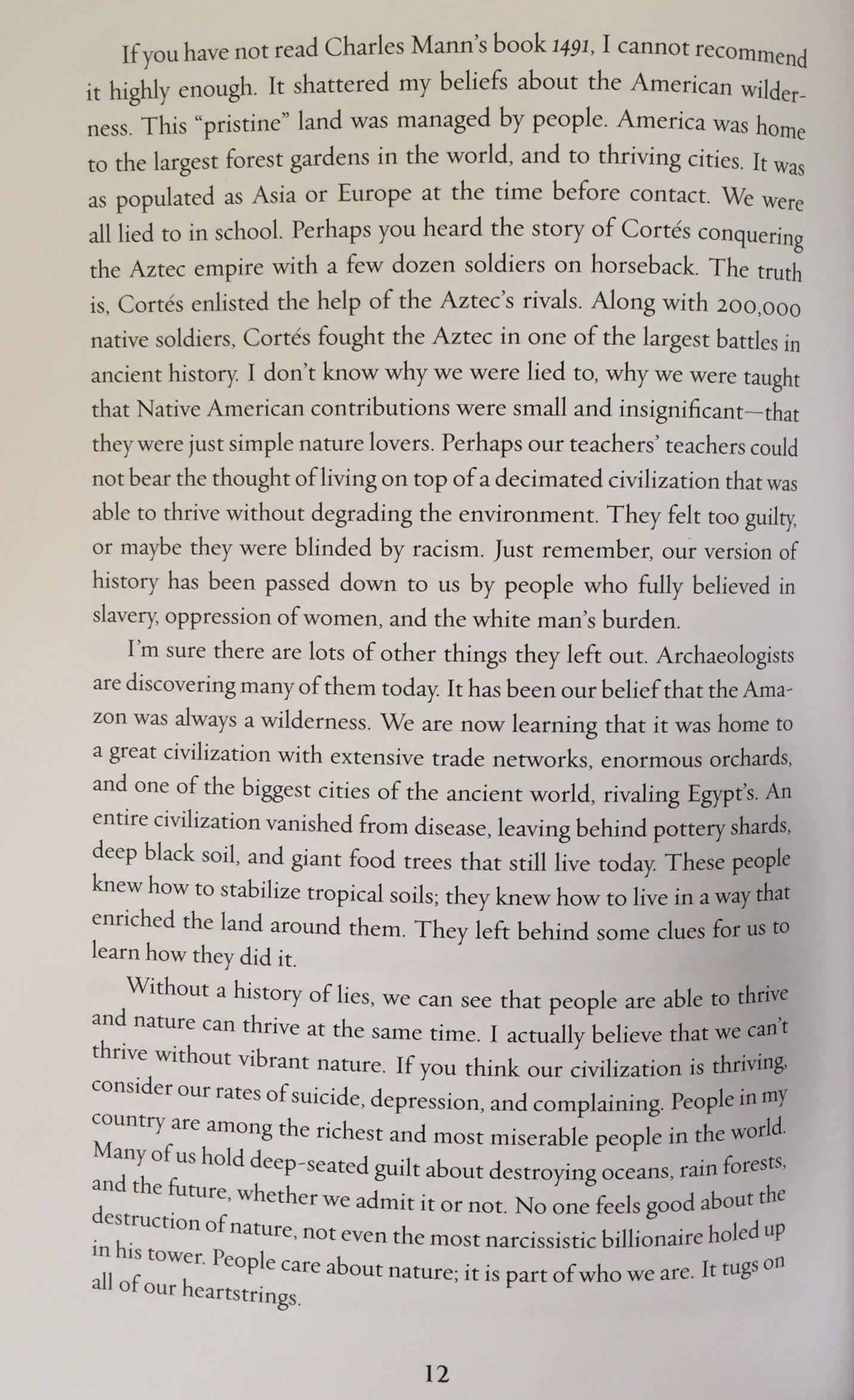
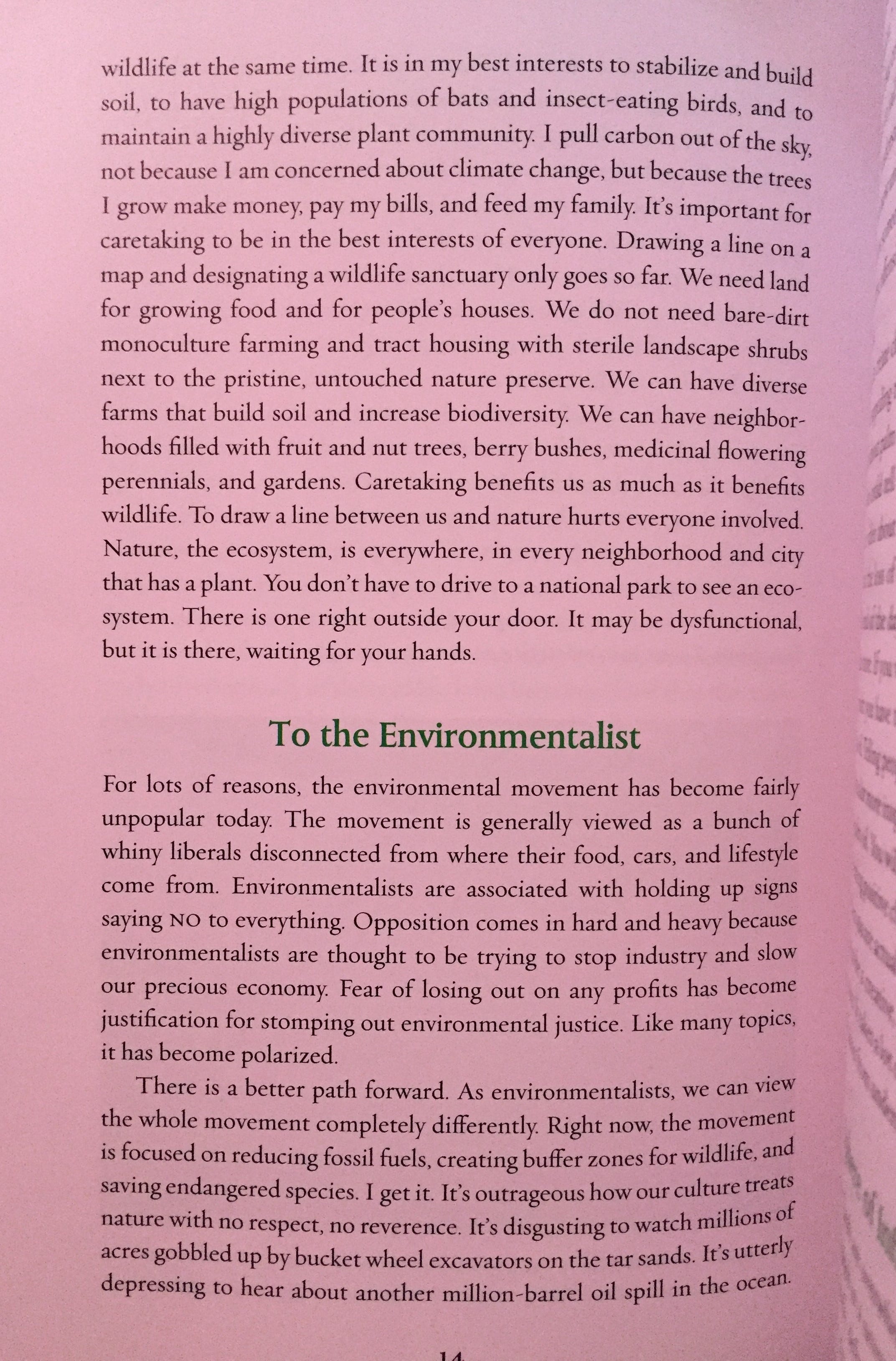

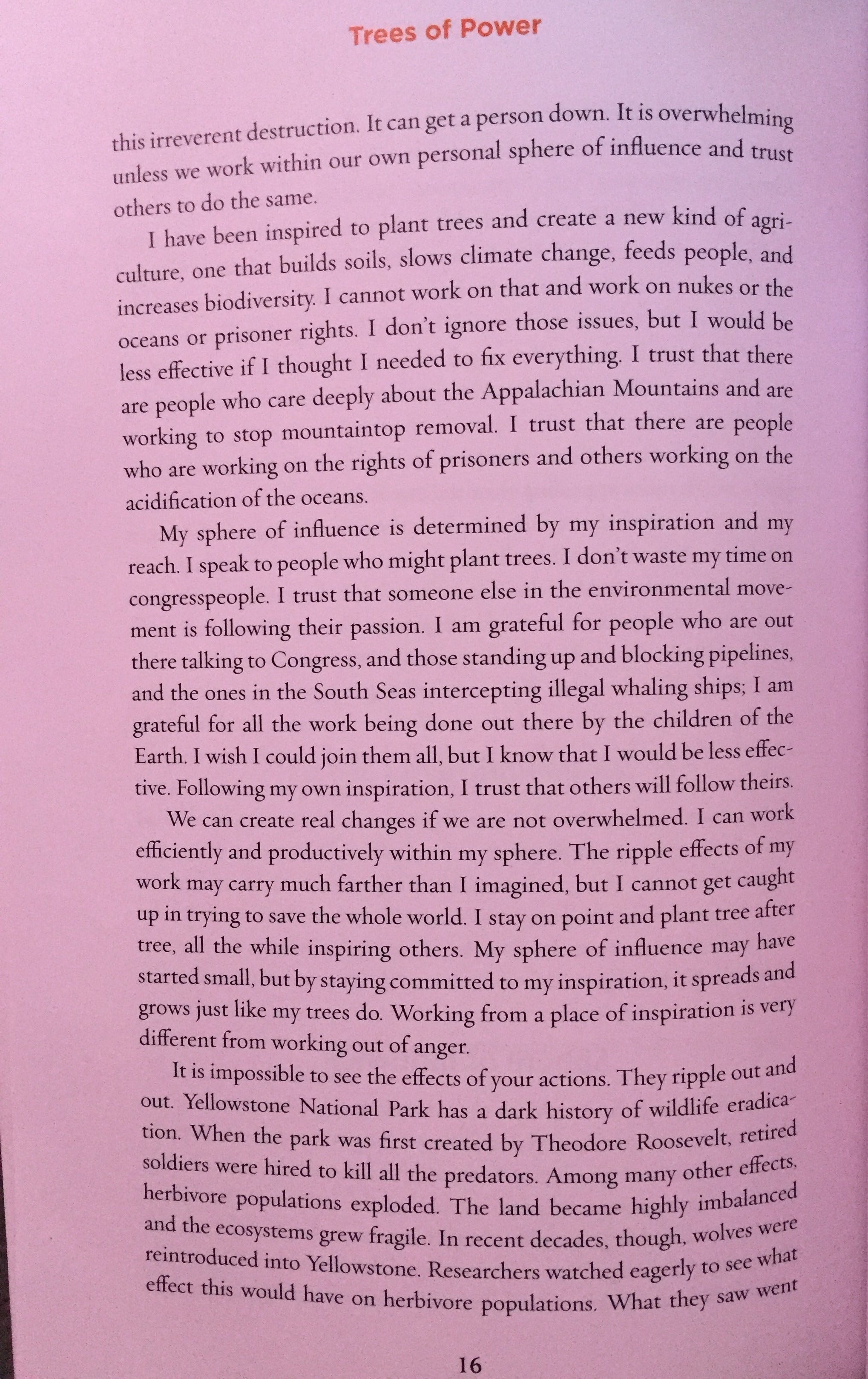
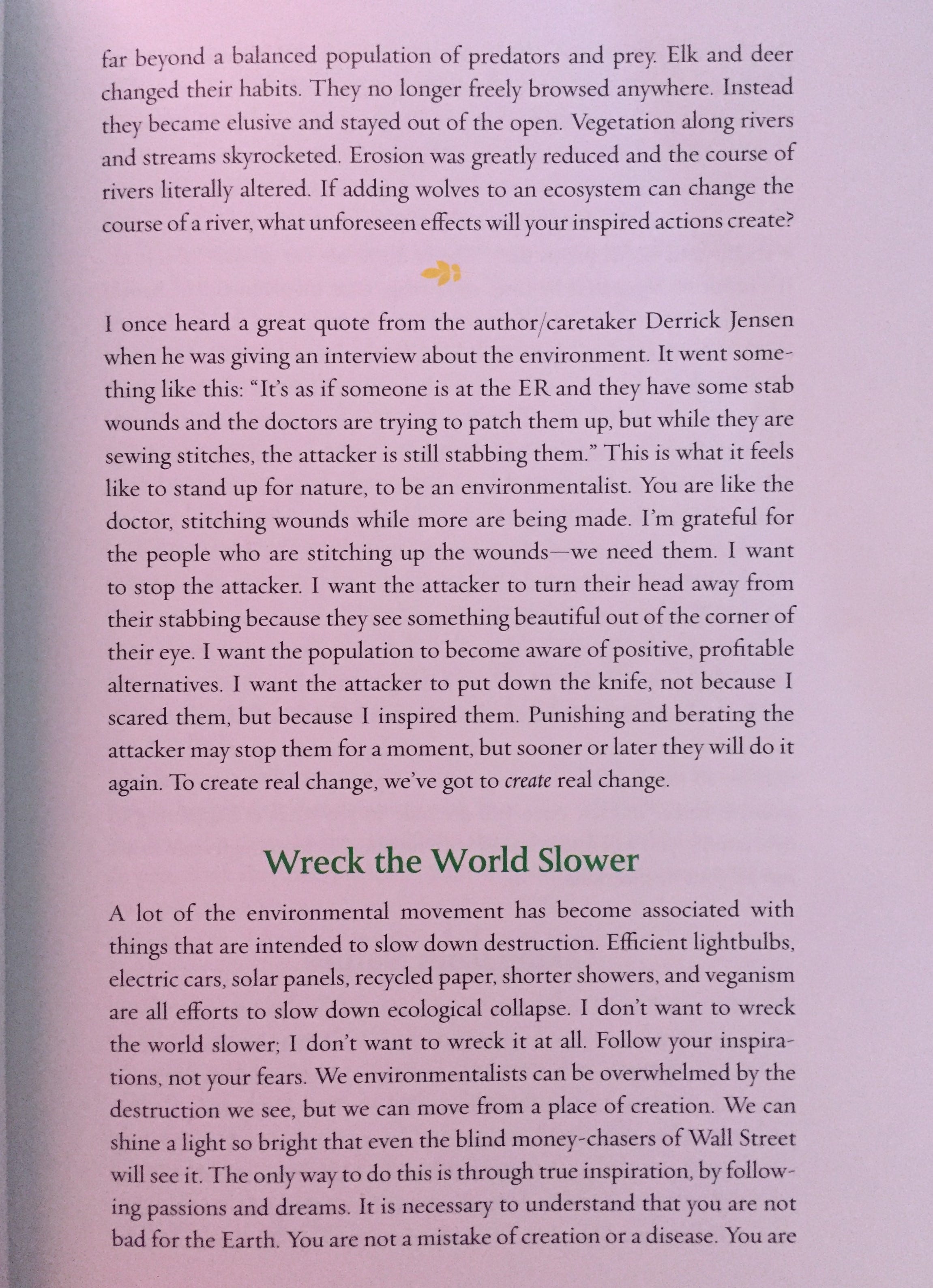
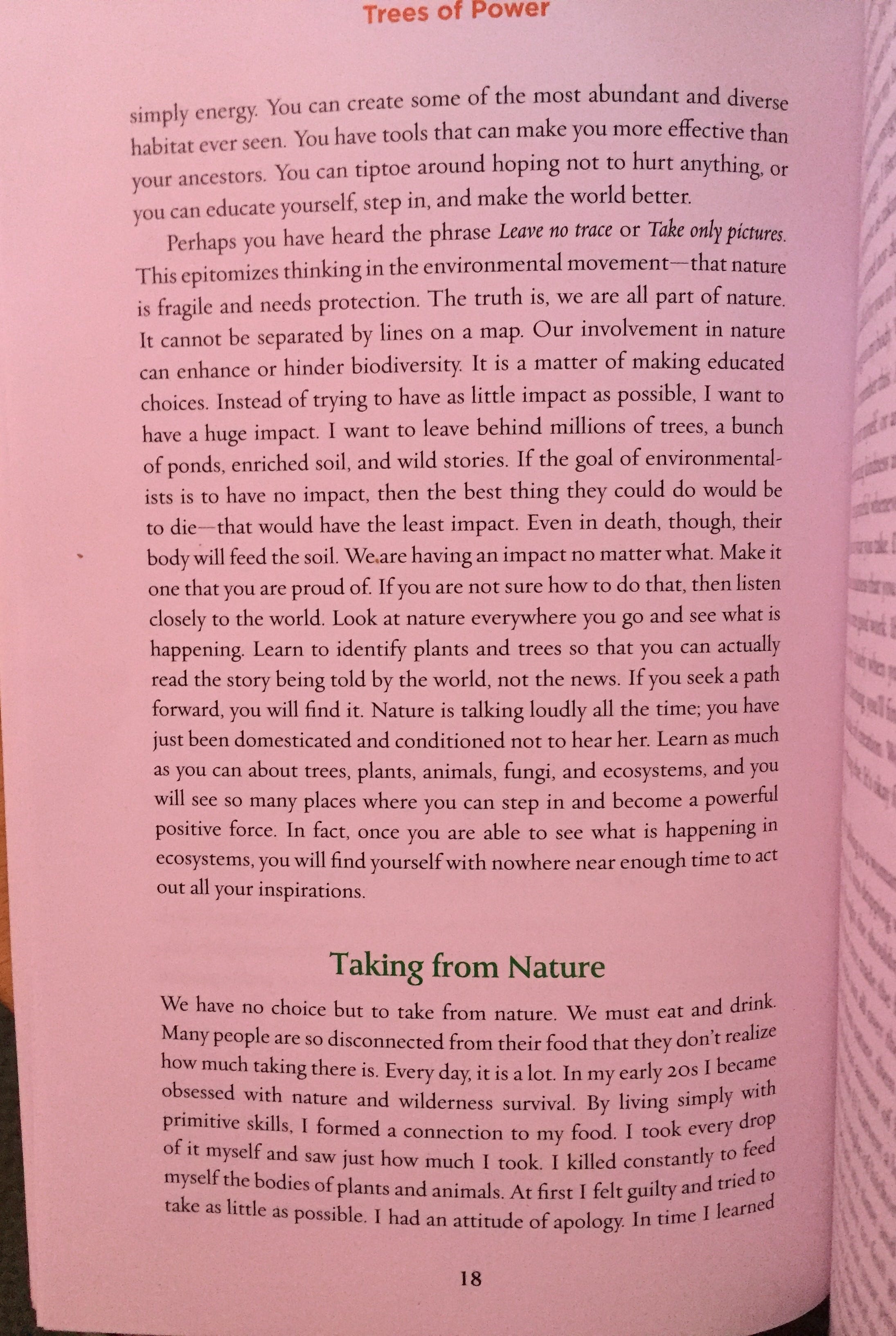

P.S. After I left my comment, Gavin, I opened this email from one of my favorite herbalists, Rosemary Gladstar. Thought this would be a good place to share it! 🌎💚
"Oh my beloved Earth,
You are the ground beneath my feet, the wind in my hair, the water running through my body. The green beings that you nurture and grow provide food for my body and soul.
Your forests, with their lush canopies, your oceans, teeming with unseen life, perform a ritual of such beauty and significance, it humbles my heart. They transform the golden rays of our celestial star into the very air we breathe, an act of love so profound, so essential, it binds me to you, irrevocably.
To you, my Earth, I offer my deepest gratitude and love. For your resilience, your beauty, and the boundless gifts you bestow upon us, I am eternally thankful and vow to do my best to protect and cherish you forever.
As I lay on your rich green verdancy gazing up at the vast blue sky, I ask to be a reflection of you...so that when people look at me, they see your fields and wildflowers and the depth of sky in my eyes.
May I learn to mirror your generosity, to protect and cherish you always.
With all my love,
A child of your endless bounty" -- Rosemary Gladstar
Thank you, as always, Gavin, for sharing your Earth-loving insights. When I get overwhelmed by the enormity of environmental problems on our planet, I tend to come back to myself and my immediate surroundings, doing what I can in the moment. When I lived in an apartment in NYC for many years, my fire escape was always teeming with plants. Morning Glories climbed the rail up to the other floors and I grew all sorts of plants. My houseplants would go outside to get watered and get some "fresh" air. I used to wonder why everyone didn't do this - imagine how beautiful the city would be (like in Europe) where fire escapes and balconies are teeming with plant life. Well, I found out why - it was against the law and there was a $500.00 fine (oops!) I didn't care - I knew someone who was dating the fire chief down the block. :) Once, there was a fire in the restaurant down below and the firemen managed to get up the stairs just fine.
Now, I live on the edge of a forest in a state with the second largest tree coverage. I feel so grateful to have landed here and try my best to be a good steward to the plants and animals. I still can't believe how long I lived in that concrete jungle. Thanks for being the caring human that you are, Gavin. 💚